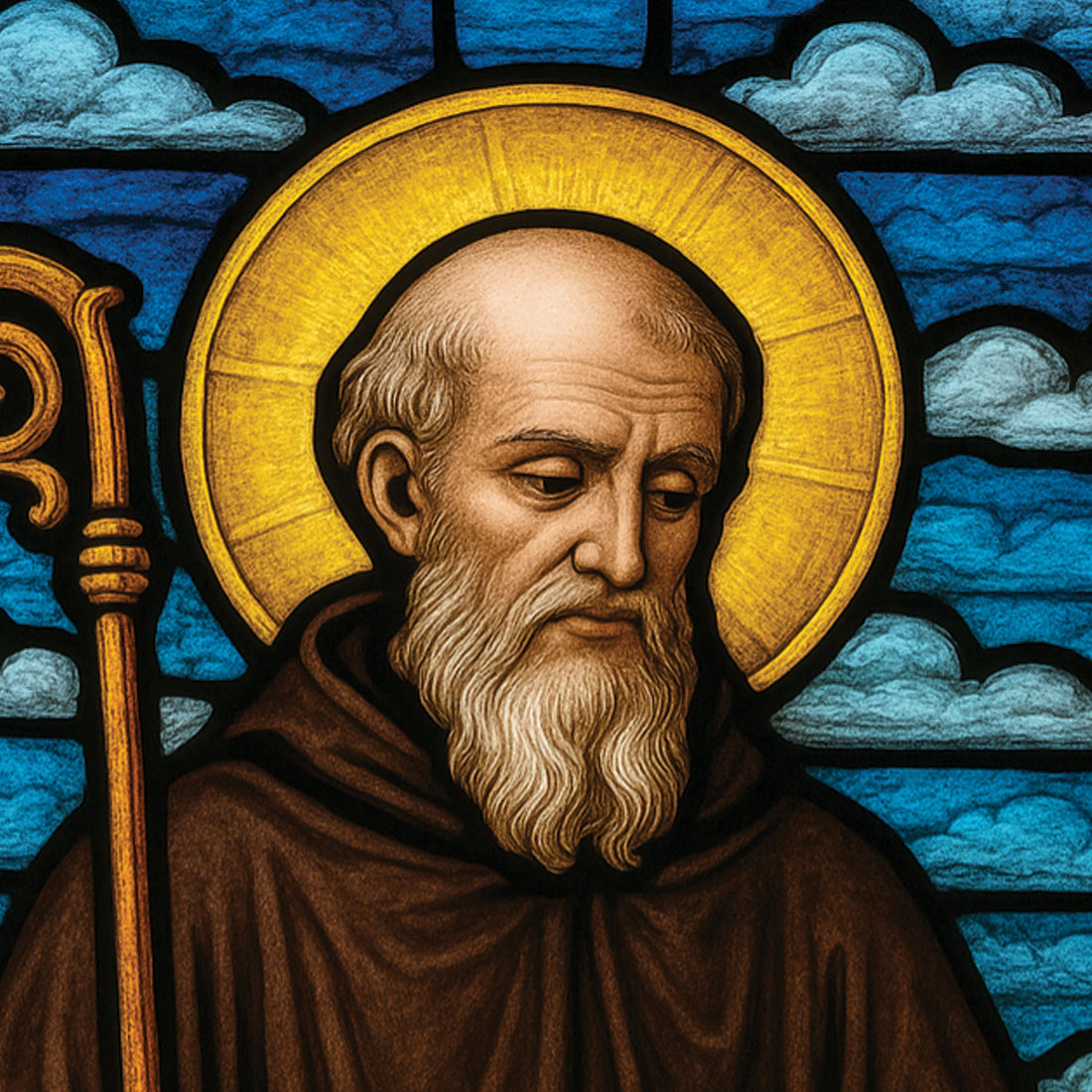
St. Benedict of Nursia
Feast Day: July 11

“Ora et labora — Pray and work.” – St. Benedict
Father of Western Monasticism
St. Benedict is honored as the Father of Western Monasticism, whose Rule of St. Benedict became the foundation for religious life throughout Europe and the wider Church. His feast day, celebrated on July 11, commemorates his profound impact on the spiritual and cultural renewal of Christian civilization.
A Young Man Seeking God
Benedict was born around 480 A.D. in Nursia (now Norcia), Italy, into a wealthy Roman family. As a young man, he went to study in Rome, but was disillusioned by the city’s corruption and moral decay. Longing for a life focused entirely on God, he withdrew to a cave in Subiaco, where he lived as a hermit, devoting himself to prayer, solitude, and contemplation.
A Founder of Monastic Communities
Benedict’s holiness attracted disciples, and over time, he founded twelve small monasteries in the Subiaco region. Eventually, he established his most famous monastery at Monte Cassino, which became a model for monastic life across Europe.
There, he wrote the Rule of St. Benedict, a guide for monastic living based on balance, moderation, humility, prayer, work, and community life.
The Rule of St. Benedict
The Rule emphasizes the motto “Ora et labora”—“Pray and work”—teaching that a balanced life of daily prayer, manual labor, and spiritual reading leads to holiness. The Rule also stresses obedience, stability, hospitality, and care for the poor.
Its practicality, wisdom, and spiritual depth allowed Benedictine monasteries to flourish, becoming centers of faith, education, agriculture, and culture during the Middle Ages.
Miracles and Spiritual Power
Benedict was known not only for his wisdom but also for many miracles, including healings, multiplying food, and protecting his monks from harm. He is also associated with the St. Benedict Medal, a powerful sacramental used for spiritual protection.
Patron of Europe and a Beacon of Light
St. Benedict is the patron saint of Europe, monks, students, and all who seek spiritual discipline and community life. His influence helped preserve Christianity and learning during centuries of political turmoil and cultural decline.
A Witness to Prayer, Work, and Holiness
St. Benedict’s life reminds the faithful that a life rooted in prayer, community, humility, and work sanctifies both the soul and society. His example continues to guide monastic communities and laypeople alike in the pursuit of holiness and balance.
St. Benedict, pray for us!








